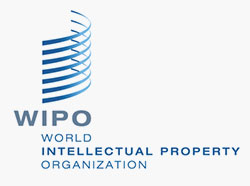
Interview: Dr Carsten Fink, Chief Economist of WIPO “Germany is a frontrunner in terms of innovation”
Dr Carsten Fink, Chief Economist at the World Intellectual Property Organization (WIPO), about positive innovation trends during the pandemic, strengths and deficits of Germany in the international innovation ecosystem and the DPMA’s participation in the multilateral IP system.

Dr Carsten Fink is Chief Economist at the World Intellectual Property Organisation (WIPO) based in Geneva. Before that, he was Professor of International Economics at the University of St. Gallen and also held the position of Visiting Professor at Sciences Po in Paris. Prior to his academic appointments, Dr Carsten Fink had worked for more than 10 years at the World Bank.
The coronavirus pandemic has posed major challenges to this innovation process. How devastating is the damage to the international “innovation ecosystem”?
Results vary, but overall the innovation balance is surprisingly positive.
The global economy experienced a major downturn, which had a noticeable impact on innovation activity. IP filings declined at national and international level during the first phase of the coronavirus pandemic in 2020. However, they recovered and the declines were relatively small, at least globally, in 2021.
It is also evident that the measures to counter the coronavirus pandemic affected the diverse sectors in different ways. For example, on the one hand, car manufacturing and many service industries recorded declining investment in research and development (R&D). On the other hand, the medical sector and information technology intensified their R&D activities — not least to find solutions to the coronavirus pandemic and its consequences.
Compared to the dotcom bubble at the beginning of the century and the financial crisis at the end of the 2000s, however, it can be stated that innovation performance has withstood the coronavirus pandemic, and some upheavals have even triggered a new and positive innovation dynamic.
How do you assess the situation in Germany?
The development of international patent applications indicates that Germany was more affected by the coronavirus pandemic than other large economies — especially compared to China, the Republic of Korea and the United States. This is partly due to the fact that the automotive sector and traditional engineering technologies play a significant role in German industry. The German economy was also particularly affected by problems in global supply chains, more so than other European economies.
In the meantime, however, the German economy has recovered, and this also applies to the number of applications for IP rights. Just as other countries, Germany has also experienced a remarkable increase in international trade mark applications over the last twelve months. This development indicates that the upheavals resulting from the coronavirus pandemic and the accelerated adoption of digital technologies have triggered a new business dynamic that has led to the introduction of many new goods and services into the market.
The development and provisioning of new COVID-19 vaccines show that innovation can also be implemented in a very short time.
Is innovation perhaps also the way out of the crisis?
Yes, absolutely. We don't know how the coronavirus pandemic would have unfolded without vaccines. But it is clear that vaccines have saved millions of lives and prevented longer and more severe lock-down measures. In our World Intellectual Property Report 2022 we estimate the societal benefit of vaccine innovation at $70.5 trillion.
I was particularly pleased that the vaccine developed by BioNTech in Germany has made such an important contribution to vaccination campaigns around the world. This vaccine is the result of many years of scientific and commercial research based on extensive international cooperation. At the same time, BioNTech's success underlines Germany's performance as a centre of innovation in the field of biomedicine.
“IP protection is a driver for growth and social diversity.”
By means of the Global Innovation Index (GII), WIPO annually analyses global innovation trends.
What have been the most important findings of the GII recently?
Our latest edition of the Global Innovation Index (GII) — published last September — shows great stability within the world's most innovative economies. Switzerland remains at the top of the GII rankings, followed by Sweden and the United States. The composition of the top ten has changed little in recent years. This is not surprising, because building a dynamic innovation system takes many years and requires a significant amount of resources. The most important long-term trend we can observe in the GII is the rise of the Asian economies. The Republic of Korea moved up to fifth place last year. China is now ranked twelfth, up from 29th ten years ago. In addition, other Asian economies such as India, the Philippines, Thailand and Vietnam have made remarkable progress over the past five years.
Germany is, so to speak, the world champion in patent applications. When it comes to other important topics for the future, such as the participation of the population in digitisation, the country has fallen behind. How do you assess Germany's innovative capacity?
Whichever way you look at it: Germany is a frontrunner in terms of innovation. It ranks tenth in the GII, and its great performance cannot be measured by patent applications alone. The German economy and German companies in particular are among those spending the most on research and development (R&D) worldwide.
While international comparisons indeed indicate that there are some deficits in the digital sector, there are also distinctive strengths. For example, Germany performs comparatively well in terms of access to information and communication technologies, and the country is also a frontrunner in the logistics sector.
Looking ahead, an overarching challenge for Germany will be to build on its strengths in many traditional technology sectors, while at the same time adapting to a new era in which digital technologies have evolved into technologies for all purposes that drive progress and business competitiveness. I have the impression that both policy makers and companies in Germany are well aware of this challenge.
As a UN agency, WIPO brings together the interests of 193 member states and is a central forum for shaping the international intellectual property system. What are currently the main topics of this forum, and what are the greatest challenges?
Our greatest challenge is articulated in WIPO's vision for the future: to foster a world where innovation and creativity are supported by intellectual property protection for the benefit of all. We are working to build a more inclusive intellectual property rights ecosystem. To achieve this, we must continue to provide world-class services to innovative companies, set international standards and bring people together to discuss intellectual property issues.
We are working hard to raise awareness of the relevance of these IP rights among the general public. This includes not only experts, but also, for example, young people, small and medium-sized enterprises, artists and musicians. We are intensifying our efforts in terms of public relations to communicate that IP protection is a key driver of jobs, investment, business growth, economic development and social diversity. These issues are among WIPO's biggest challenges today.
Which significance does the DPMA have as a partner of WIPO?
WIPO will continue to rely on its excellent cooperation with the DPMA. German enterprises are among the main users of the international IP system. German applicants account for about 6% of all international patent applications filed under the PCT Treaty, about 7% of all trade mark applications within the Madrid system and about 13% of design applications within the Hague system. Looking at Germany's share of global GDP, it becomes clear that the share of applications from Germany even exceeds Germany's weight in the global economy. In turn, companies from all over the world are very interested in having their intellectual property protected in Germany. The close cooperation between the DPMA and WIPO will continue to ensure balanced protection of intellectual property flowing into and out of Germany. It is enshrined in numerous treaties and is put into practice and implemented on a daily basis. In addition, Germany is very focused on its participation in the multilateral discussions at WIPO, thus demonstrating its commitment to multilateralism.

Overview The DPMA and WIPO — a reliable partnership

With 193 member states, the World Intellectual Property Organization (WIPO) is the global forum for IP services, policy, information and cooperation.
WIPO’s primary aim is to develop a balanced and effective international IP system that enables innovation and creativity for the benefit of all.
On various bodies, a number of our staff work with colleagues from the 193 member states on technical issues (e.g. on the Standing Committee on WIPO Standards) and legal issues (e.g. on the Standing Committee on the Law of Patents).
After the seminars had been suspended due to the pandemic, the DPMA held the traditional WIPO Roving Seminar together with WIPO and the national offices of Switzerland and Austria.
In an online seminar in February 2021, IP experts provided information about the services and initiatives of WIPO.
WIPO’s special tasks include providing support to developing countries. By providing regular training, the DPMA, too, is engaged in this important task.
Together with WIPO and the Federal Patent Court, the DPMA recently organised a webinar on utility model procedures for the Egyptian Patent Office.